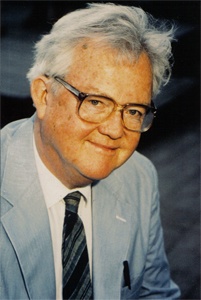9/29/09
9/29/09
I haven’t written a blog for about eight months, and I am sure that most visitors to my website have long ago given up looking to see if there is a new one. I’ve been unusually busy—but that is supposed to be what blogs record, not what keeps them from being written. No excuses.
Three more items have been added to the “Responses and Reminiscences” series. This series is apparently—as I know from emaiils—gaining a considerable readership, and I enjoy writing it.
Some of you know already, and others will find out before too long, that my big project right now is producing, for non-profit distribution of some kind eventually, a series of videotaped and recorded slide-lectures (in effect) on early Chinese painting, especially landscape painting, through the Sung dynasty (the end of the 13th century.) These began as a relatively simple plan to video-record my old lecture series on that subject; they have grown far beyond that plan, largely through the good cooperation of my producer/director/editor Rand Chatterjee, founder and president of a local company called Chatterbox Films Ltd. The series is being sponsored, and eventually will be distributed, by the Institute for East Asian Studies in Berkeley. I now have on my iPhoto Library screen around 1500 images, made mostly from slides, both from my own collection and from the History of Art Visual Resources Collection, with Jan Eklund as Director and Samantha Zhu as East Asian specialist—I have depended very much on their help. My series, which is titled “A Pure and Remote View” (after the great Hsia Kuei scroll, which will be a climax), was motivated in part by my feelings of guilt, for myself and my whole generation of Chinese painting specialists, over having failed to produce the comprehensive history of this great material that we badly need. Just at the time in the 1960s-70s when we had at last attained the visual mastery that such a history needed to be based in, through large slide-making and photographing projects, this kind of “narrative art history,” or Gombrich-style style history, went out of fashion, and our younger colleagues are disinclined to attempt any such history. I think of myself as, for better or worse, the only survivor both able and willing to do it, and since I am no longer in a position to write it as a book (as I once meant to do, after finishing the “Later Chinese Painting” series), am doing it in this video-recorded form. It will be announced on my website and in emails to a great many friends and colleagues when it is ready for distribution. It will, I emphasize, be only a supplement to proper academic courses in early Chinese painting, since it will offer mostly the visuals, leaving out the longish lectures on history and philosophy and so forth that any such course needs, leaving out Buddhist painting entirely (my decision based on my incompetence in this area). But as a visual resource it should prove really valuable to our field of study, a major late-life offering from this old sensei.
At the end of the list of “Writings of James Cahill” is a new entry, a pdf of the original libretto (1949) of the chamber-opera “A Day At Creed’s” or (the title I didn’t like but have had to accept) “Creedo in Unum Bookstore.” (See R&R 57 about this.) The disk with a recording of this is still in principle available; contact me if you really want it.
I will also be putting on my website, as time permits, several essays-with-images, and will announce them in future blogs. I will conclude this one with a puzzle:
Here is a rhyme-puzzle I made up long ago, which few people have solved. (One of my former students, Mary Ann Rogers, determined to get it, spent two days was it? and did.) It's simple: What rhymes with ice-water? (Three-syllable rhyme, please--otter and potter won't do.) Send answers through the “Contact” form.
All for now, James Cahill
